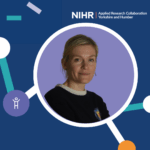Unlocking the forest: An ethnographic evaluation of Forest Schools on developmental outcomes for 3-year-olds unaccustomed to woodland spaces
Early years experiences affect children’s physical, cognitive and emotional development. Spending time in green spaces offers benefits for children’s development, but access and use can be limited in urban settings. Forest schools have become increasingly popular for nurseries and kindergartens. The benefits of Forest Schools for primary-aged children have been explored, but little is known about the benefits for pre-school children. A Forest School programme in an urban area of Bradford was evaluated to understand children’s experiences and benefits.
Dr Chavez observed 20 3-year-olds attending 11 weekly Forest School sessions. Observations totalled 65 hours. Dr Chavez also interviewed 14 parents, and nursery and Forest School staff. Dr Chavez and Dr Dharni used the Early Years Foundation Stage Statutory Framework and looked for patterns in the interview data to understand the benefits children had gained.
The results showed that Forest School for this age group had benefits for age-specific health and development outcomes, particularly personal, socio- and emotional development, verbal communication, and mathematics.
Forest School is a promising and feasible method to improve connection to nature and development in children aged 3 years, and help prepare them for school. Forest School can support very young children to enjoy and be safe in natural environments. It can help children cope with change from being mainly at home with family and carers, to being at school and in their neighbourhood.
Details:
Theme:
Author(s):

Director – Better Start Bradford Innovation Hub and Bradford Inequalities Research Unit

Theme Co-lead